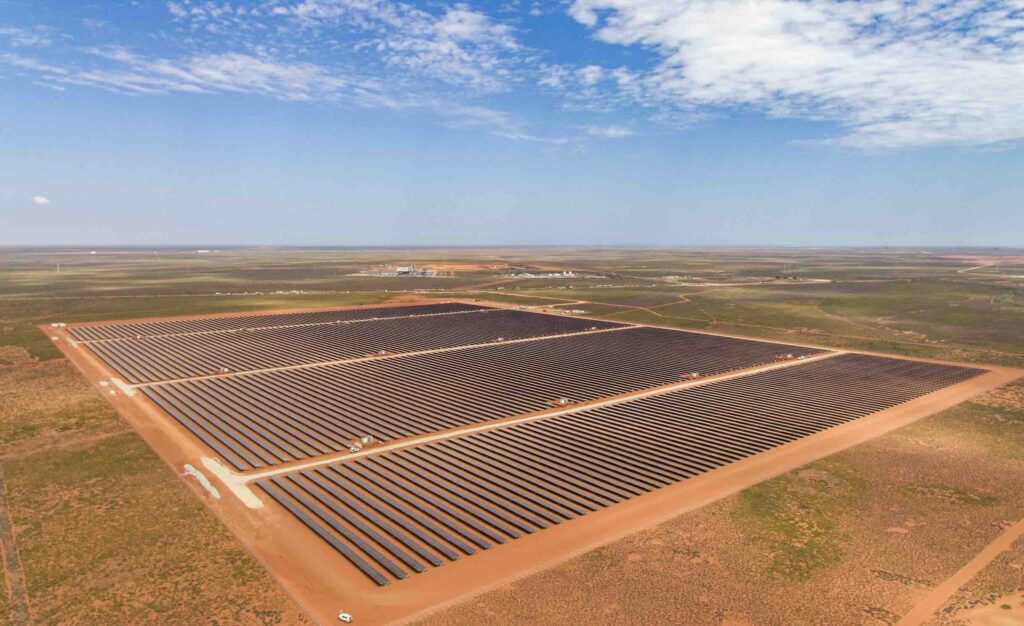
UPDATE: Major investors are urgently calling for reforms to Australia’s foreign investment rules to maintain critical funding for renewable energy projects. The Clean Energy Investor Group (CEIG) warns that without swift changes, the country risks losing approximately 70 percent of necessary capital from overseas investors.
In a submission to a federal productivity roundtable, CEIG’s Marilyne Crestias expressed deep concern over existing policy barriers that could impede the flow of foreign investment. “Policy and regulatory barriers, particularly in foreign investment, taxation, and superannuation, are limiting capital flows into sectors critical to long-term productivity and economic resilience,” Crestias stated.
The CEIG highlighted that Australia is seen as “somewhat attractive” for clean energy investments, but the perception is overshadowed by slow planning processes and lengthy environmental assessments. “Renewable energy projects face stricter thresholds and more frequent FIRB reviews than other sectors,” Crestias added.
As geopolitical tensions rise, foreign investors, especially from Asia and the Middle East, encounter additional scrutiny that complicates investment opportunities. The CEIG is advocating for changes to land thresholds, currently set at $15 million for agricultural land, which trigger federal reviews. For vacant commercial land, the threshold is a mere $0, meaning all deals necessitate FIRB approval.
The CEIG proposes classifying developed renewable energy sites as infrastructure rather than agricultural or commercial land for FIRB purposes. This would streamline assessments, encouraging more investment. Furthermore, they suggest exempting renewable energy projects from restrictions on foreign investment in established residential properties, such as farms with dwellings, to facilitate solar or wind farms.
In a contentious issue, the CEIG is also addressing potential changes to capital gains tax for foreign investors. Currently, foreign-based investors do not pay capital gains tax upon selling renewable energy projects. However, the federal government plans to redefine “close economic connection” to include installed infrastructure. The CEIG warns that these changes could lead to perceptions of sovereign risk for Australia, causing investors to reconsider their commitments.
Crestias pointed out that countries like Canada, Germany, and the United Kingdom have exempted clean energy infrastructure from foreign capital gains taxes. The CEIG argues that treating land used for clean energy as personal property for tax purposes could enhance Australia’s appeal to global investors.
Additionally, the CEIG aims to reform the Your Future, Your Super (YFYS) performance test that governs superannuation funds. The current benchmark favors high-emission funds, disadvantaging investments in clean energy. “The test uses outdated benchmarks based on historically strong-performing legacy infrastructure, often dominated by fossil fuel assets,” the CEIG submission asserts.
To foster clean energy investments, the CEIG recommends integrating the Australian Prudential Regulation Authority’s (APRA) heatmaps into the YFYS framework, creating a dedicated clean energy infrastructure asset class.
With these urgent recommendations, the CEIG stresses the need for immediate action to ensure that Australia remains competitive in the global clean energy market. Investors, policymakers, and stakeholders must work together to eliminate barriers and promote transparency in foreign investment regulations.
As the situation develops, the CEIG’s proposals could significantly reshape the landscape for renewable energy investments in Australia, making it critical for those involved in the sector to stay informed and engaged.






